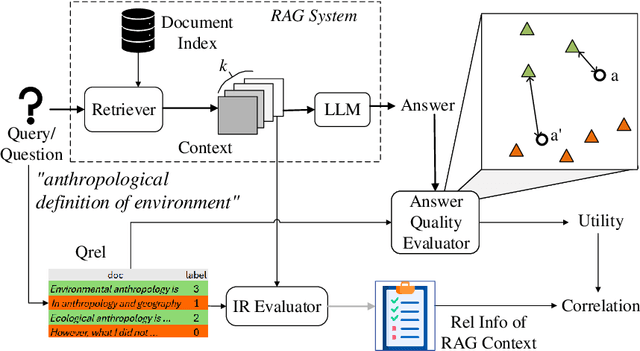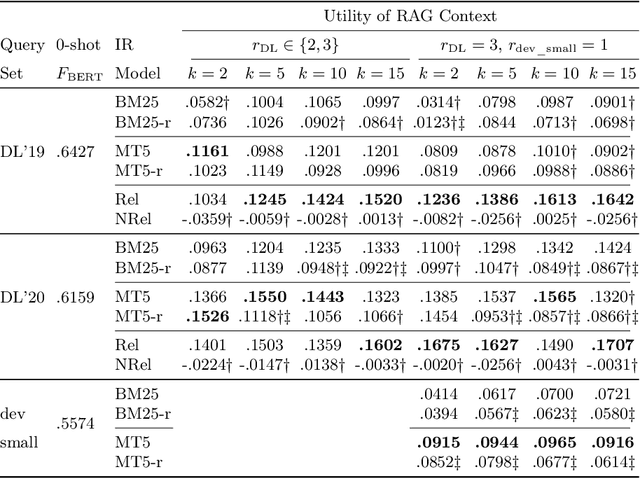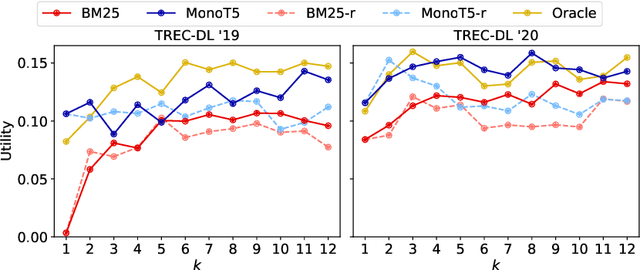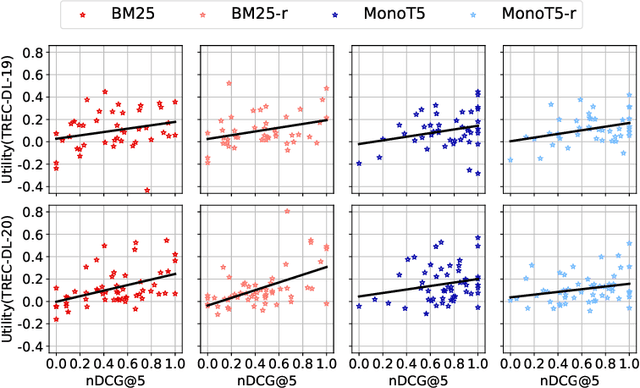Is Relevance Propagated from Retriever to Generator in RAG?
Paper and Code
Feb 20, 2025



Retrieval Augmented Generation (RAG) is a framework for incorporating external knowledge, usually in the form of a set of documents retrieved from a collection, as a part of a prompt to a large language model (LLM) to potentially improve the performance of a downstream task, such as question answering. Different from a standard retrieval task's objective of maximising the relevance of a set of top-ranked documents, a RAG system's objective is rather to maximise their total utility, where the utility of a document indicates whether including it as a part of the additional contextual information in an LLM prompt improves a downstream task. Existing studies investigate the role of the relevance of a RAG context for knowledge-intensive language tasks (KILT), where relevance essentially takes the form of answer containment. In contrast, in our work, relevance corresponds to that of topical overlap between a query and a document for an information seeking task. Specifically, we make use of an IR test collection to empirically investigate whether a RAG context comprised of topically relevant documents leads to improved downstream performance. Our experiments lead to the following findings: (a) there is a small positive correlation between relevance and utility; (b) this correlation decreases with increasing context sizes (higher values of k in k-shot); and (c) a more effective retrieval model generally leads to better downstream RAG performance.
 Add to Chrome
Add to Chrome Add to Firefox
Add to Firefox Add to Edge
Add to Edge